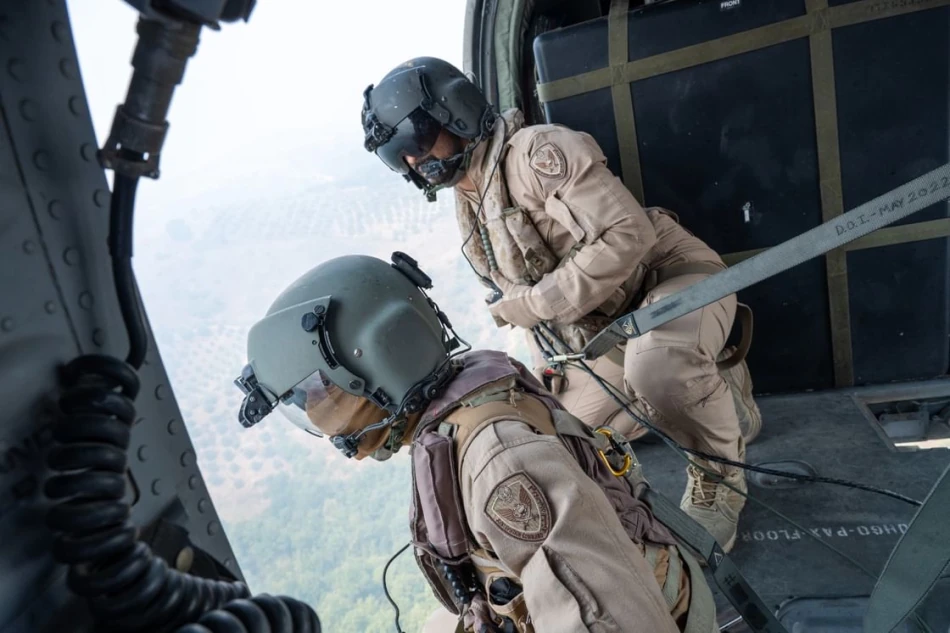
Emirati Rescue Team Concludes Mission in Albania: Heroic Efforts Save Lives Amidst Natural Disaster
UAE Firefighting Mission in Albania Demonstrates Growing Gulf Humanitarian Diplomacy
The UAE has concluded a significant firefighting mission in Albania, deploying specialized aerial teams that conducted 28 flights and dropped over 1,300 tons of water to combat wildfires. The operation, which resulted in more than 700 water-dropping missions, reflects the Emirates' expanding role in international disaster response and strengthens bilateral ties with the Balkan nation.
Mission by the Numbers: Strategic Impact on Fire Suppression
The Emirati rescue teams demonstrated impressive operational capacity during their deployment in Albania. Their 28 specialized aerial sorties resulted in over 700 targeted water drops, utilizing approximately 1,300 tons of water across fire-affected regions. This scale of intervention directly contributed to containing multiple fire hotspots and preventing their expansion into populated or environmentally sensitive areas.
The mission's success rate highlights the UAE's investment in advanced firefighting capabilities, positioning the country as a regional leader in disaster response technology. The coordination with Albanian authorities showcased interoperability between Gulf and European emergency services—a capability that becomes increasingly valuable as climate change intensifies wildfire risks globally.
Diplomatic Dividends: Strengthening UAE-Albania Relations
Albania's government held formal ceremonies to honor the UAE teams, signaling the mission's diplomatic significance beyond its immediate humanitarian impact. This recognition reflects how disaster diplomacy can accelerate bilateral relationships, particularly between nations seeking to diversify their international partnerships.
For the UAE, such missions serve multiple strategic purposes: demonstrating soft power capabilities, building goodwill in European markets, and establishing precedents for future cooperation. Albania, as a NATO member and EU candidate country, represents an important bridge between the Gulf and European security frameworks.
Regional Context: Gulf States as Global First Responders
The UAE's Albanian mission follows a pattern of increased Gulf state involvement in international disaster response. Similar to Saudi Arabia's humanitarian initiatives and Qatar's disaster relief programs, the Emirates is leveraging its logistical capabilities and financial resources to project influence through humanitarian assistance.
This approach mirrors successful models from other middle powers like Turkey and South Korea, which have used disaster diplomacy to expand their global footprint. The UAE's geographic position, advanced aviation infrastructure, and rapid deployment capabilities make it particularly well-suited for such missions across Africa, Asia, and now Europe.
Climate Implications: Preparing for Future Wildfire Seasons
The Albanian operation comes as Mediterranean countries face increasingly severe wildfire seasons due to climate change. The UAE's involvement suggests Gulf states recognize that environmental disasters transcend regional boundaries and require coordinated international responses.
This mission likely serves as valuable training for UAE teams, who may face similar challenges domestically as the region experiences more extreme weather events. The experience gained in Albanian terrain and conditions enhances the UAE's overall disaster preparedness capabilities while contributing to global firefighting knowledge sharing.
Most Viewed News

 Sara Khaled
Sara Khaled






